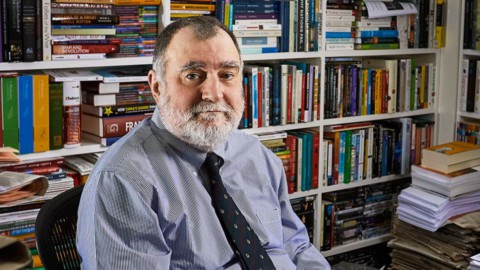Senza una diagnosi precisa e condivisa dei problemi del Paese, è ben difficile che qualcuno riesca a porvi rimedio. Lo stallo della politica è l’ennesima conferma che quando non si sa cosa fare… non si fa niente.
Lo stesso “dibattito politico” non va oltre il pettegolezzo: cosa Tizio ha detto di ciò che Caio ha detto di quanto detto da Sempronio…
Eppure, tutti sanno – perché lo vedono ogni giorno – quali sono i problemi e quindi quali sarebbero le priorità. Ma essendo problemi che caratterizzano ciò che ci accomuna, nessuno – da solo – è in grado di risolverli.
L’allarme appena lanciato a Torino dagli industriali, il 12-13 aprile, ne è solo l’ennesima conferma. Da molti anni, l’Italia non cresce e la crisi odierna è solo in parte una recessione e l’indesiderata conseguenza di politiche (più o meno motivate) di austerità. REF Ricerche è da sempre attenta a distinguere nelle sue analisi: congiuntura e tendenze; breve e lungo periodo; il ciclo dai fondamentali. Più volte abbiamo precisato che assieme alla recessione – che in quanto tale, terminerà prima o poi con una ripresa – è in corso una perdita di potenziale, cioè un abbassamento del prevedibile sentiero di crescita. L’ultima volta ciò è stato ben spiegato nel pezzo di REF (del 20 febbraio 2013) intitolato “Deindustrializzazione“. Ma ne avevamo già parlato su queste pagine anche prima (vedi l’analisi Ripresa o crescita? del 10 dicembre 2012). Il fatto è che se ne parla per un po’, ma poi non si riesce a trasformare l’analisi in una diagnosi condivisa e quindi in azione politica. Si passa a parlare d’altro…
Una prima diagnosi fu presentata dieci anni fa, in un bel numero della Rivista Il Mulino, la cui parte sul declino dell’economia italiana era stata da Edmondo Berselli intitolata: Un’economia che non gira.
La posizione più chiara e sistematica l’aveva poi espressa Mario Draghi alle sue prime Considerazioni Finali del 31 maggio 2006: venti pagine interamente ed esplicitamente dedicate ad un solo obiettivo: “Tornare alla crescita“. Una posizione condivisa con l’intero Servizio Studi della Banca d’Italia che già negli anni precedenti – anche con le analisi sul declino dell’economia italiana di Ignazio Visco, oggi Governatore, aveva affrontato quei temi. Altri sette anni (e tre Governi) sono trascorsi dalla diagnosi Draghi e il problema è sempre quello, solo più grave. La mancata crescita è diventata declino e poi decadenza (non è più solo la produttività e poi il Pil che arretrano, ma anche la qualità delle istituzioni).
Ricordiamo in estrema sintesi di cosa stiamo parlando. Con le parole di Draghi (2006): “In Italia, dalla metà degli anni novanta… la produttività totale dei fattori si è ridotta, caso unico fra i paesi industrializzati.” Essendo la situazione negli anni successivi ulteriormente peggiorata, possiamo dire che sono ormai vent’anni che l’Italia va indietro. Ogni giorno, lo leggiamo sui dati che quel giorno sono pubblicati: una volta sono i consumi, una volta gli occupati, una volta la produzione, e così via. Ma queste sono le tante tessere di un unico mosaico: mancando la crescita, non è più vero che le nuove generazioni stiano meglio di quelle precedenti. E poiché tutto ciò vale in media, mentre sappiamo che è tipico delle fasi di declino registrare anche un’aumentata varianza, può succedere – ed anche questo lo vediamo tutti i giorni – che ci sia una concentrazione sempre più diseguale del benessere. Alcuni soffrono molto più di altri.
Ci interessa davvero indovinare il giorno in cui inizierà la ripresa? A pensarci bene, questo è il minore dei problemi. L’unica cosa che sappiamo con certezza è che il Paese smetterà di andare indietro qualche tempo dopo che al Quirinale come a Palazzo Chigi ci sarà qualcuno che avrà questa sola priorità: tornare a crescere, nell’interesse di tutti e di ciascuno.





